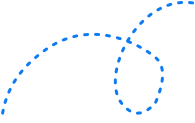Types Of Keywords


From internal linking to site mapping, many branches make a bulletproof SEO strategy. If you’ve considered upgrading your SEO tactics, you would likely have come across keyword research and implementation. Using keywords is essential to any SEO campaign and requires thorough research to ensure you’re using the right ones.
But what are keywords, and what types do you use for your website? This blog will define the keywords you may come across in your SEO venture and explore which are best suited to your digital marketing goals.
What are keywords?
In the SEO field, keywords refer to the words users type into Google when searching for something specific or to find content, for example, ‘best shampoo for oily hair.’ Also known as search queries, the keywords relevant to your industry are crucial if you want your website to rank highly in search results.
Having relevant keywords on your website gives users a better chance of finding your content and driving organic traffic to certain pages. However, that doesn’t mean just using any keyword that’s slightly relevant to your industry.
Keywords come in many forms, from short keywords to navigation keywords — it’s your job to find the ones that will not only bring new visitors to your site but also help you meet your digital marketing goals.
Search intent keywords
Whether a user is looking for more information about a particular topic, needs directions, or wants to purchase something, there is usually an intent behind just about any search. Depending on your business’ nature, keyword intent plays a significant role in the likelihood of a user clicking on your website.
Many search intent keywords also represent the stages of a user’s or customer’s journey. Let’s explore some common types of search intent keywords.
Informational keywords
Informational keywords refer to those a person uses when searching for information about a product, service, or topic. For example, looking up upcoming weather conditions, how many pages are in a specific book, or how to clean a fish tank.
One important thing to remember about informational keywords is that when a user searches with these keywords, Google is highly intuitive to a user’s needs and provides answers well beyond written content.
For instance, if a user searches for ‘how to clean a fish tank,’ the search engine may offer a blog post featuring a video or a series of images about this topic. If you want to rank for informational keywords, consider implementing these features as part of your SEO strategy.
Navigational keywords
People may use navigational keywords when they want to go to a specific website, like Facebook or their energy provider. Google is smart enough to understand that if a user searches for a business by name, they usually want to visit their website. So while this may seem obvious, it’s essential to ensure a user can find your business easily online just by typing its name.
Commercial keywords
Commercial keywords are often used by people who intend to purchase something shortly but need more information about the item. For example, ‘what is the best hair dryer?’
Transactional keywords
Transactional keywords are those a person uses when they intend to buy something. Depending on the item, a person may already know what they want and will search for the product by name, for example, ‘Rambler water bottle.’
On-page SEO keywords
As the name suggests, on-page SEO is any SEO tactic performed for any webpage, including meta descriptions, images, internal linking, and keywords. Google will consider whether on-page SEO keywords align with a user’s search intent.
If your webpage contains these used keywords, it will rank the page higher in search results. Let’s look at the three types of on-page SEO keywords:
Long-tail keywords
Long-tail keywords are highly specific and, as the name suggests, long. Long-tail keywords generally have low traffic volumes but may have a higher conversion rate because they are specific.
Mid-tail keywords
Also known as ‘chunky keywords,’ mid-tail keywords usually contain three or more words and are moderately competitive in search traffic, for example, ‘gym in Sydney.’
Short-tail keywords
Short-tail keywords are short keywords that only consist of one or two words. These keywords can be extensive in terms of topics. Because of this, short keywords often have a high search volume, which can draw in more website visitors. However, this can make it difficult to compete with other sites if they’re trying to rank for the same thing.
Industry SEO keywords
Industry SEO refers to the optimization done for an organization looking to improve its authority and credibility, such as a mechanic or fertility clinic. Aside from using relevant keywords, it also involves high-quality content, service descriptions, and backlinks. Let’s learn more about the three types of industry SEO keywords:
Market segment keywords
These keywords are used when a person is looking for a particular product, service, or industry. For example, ‘cat food’ can bring up several search results relating to the pet industry.
Customer-defining keywords
These keywords filter users down to a specific demographic, such as age, gender, location, and more. For example, ‘shorts for women’ will trigger the search engine to only display results relevant to women.
Product keywords
Product keywords mention products by name or brand, for instance, ‘De’Longhi coffee machine.’ These keywords will trigger search results with sites that offer this specific product.
Geo-targeting keywords
Geo-targeting keywords refer to keywords a person uses when searching for a product or service within a specific location. For example, ‘Italian restaurant in Florida.’
Types of keywords used for paid search
When it comes to paid search or pay-per-click (PPC) keywords, SEO specialists will use three different types of keywords for your paid search campaign — exact match, phrase match, and negative keywords.
Unlike regular SEO keywords, which you must regularly optimize, monitor, or update, PPC keywords give you more control, allowing your content to appear in search results.
Exact match keywords
Exact match keywords are those that perfectly match a user’s search query. These keywords generally have a low reach but can be highly effective for conversions. Exact match keywords are used with brackets and will only appear if an exact search is made.
Phrase match keywords
Similar to exact match keywords, phrase match keywords are used with quotations. For these keywords to appear in the user’s search results, the keywords must be an exact match or contain close variants.
Negative keywords
Negative keywords are those that sound like they would be closely related to your field but aren’t. For example, say you run multiple wedding venues, and someone searches for an ‘outdoor wedding venue.’ Your ad appears, and a person clicks on it and leaves when they realize your company doesn’t offer wedding venues outdoors, wasting a paid click.
By listing ‘outdoor’ as a negative keyword, your ads will no longer appear in those searches, ensuring only you drive ready-to-convert customers to your website.
Nail your keyword strategy with an SEO campaign made by Online Marketing Gurus
If there’s one thing you need to get right with your SEO campaign, it’s keywords. Keywords help you connect with your existing customers and, more importantly, find new ones. With so many different types of keywords, finding the ones relevant to your business can feel almost impossible — that’s where we come in.
Online Marketing Gurus is a highly experienced digital marketing agency specializing in all SEO branches. Whether you’re a budding café or have been running a hotel for years, we can put your website on the path to digital success!
Unlike other digital marketing agencies, we approach our clients one-on-one and create SEO campaigns tailored to your needs and goals. From skyrocketing sales to becoming a trusted leader in your field, our gurus have the resources and know-how to take your business to the next level. Discover our range of SEO keyword services by contacting us today.


